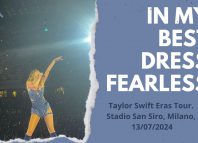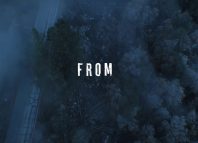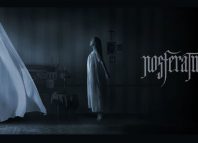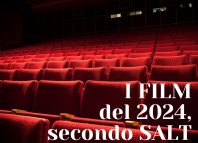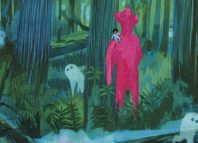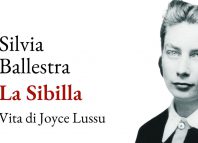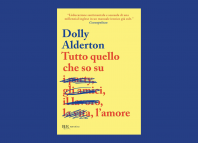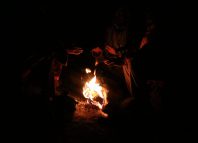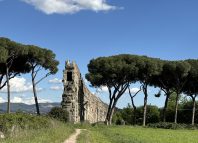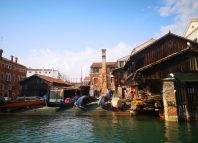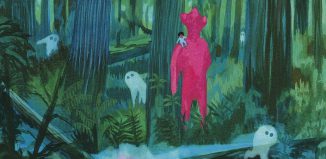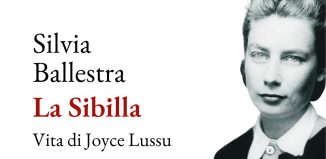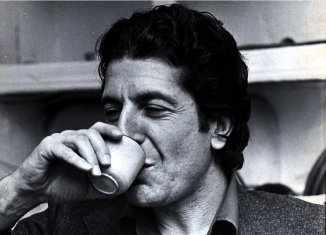A hole lot of fun | The Tunnel, Hart Crane
“Quattro caramelle di una confezione Life Savers al gusto frutta equivalgono a 45 calorie con lo 0% di grassi, proteine e sodio, 11 grammi di carboidrati e 9 grammi di zucchero”.
Le quattro caramelle gli ricordavano dei salvagente e lo sono diventate.
I salvagente mi fanno pensare che nel 1912 il Titanic ha fatto la fine che ha fatto nello stesso anno in cui Clarence Crane produce mentine bianche con il buco. Sembrano dei salvagente in onore dei prossimi che beati loro scamperanno alla tragedia grazie ad un upgrade nelle misure di sicurezza.
Life Savers, salvagente.
Nel 1932, Hart Crane – il figlio, poeta, fatalista, 33 anni – è a bordo dell’USS Orizaba mentre attraversa il Golfo del Messico per tornare a casa. Certo, dicono tutti così.
Si getta in mare. Morte per acqua.
I name this ship “The Tragedy”.
Ad osservare c’è probabilmente un marinaio distratto che ride di noi perché non merita di stare a guardare immobile la nostra depressione costante e contagiosa verso tutti ma mai verso di lui.
Lo sa, alzata di spalle, ride comunque.
*
The Tunnel è tra le poesie della raccolta The Bridge, 1929.
Crane, la città: il paesaggio non fa più da sfondo perché i singoli elementi del paesaggio urbano, le costruzioni dell’uomo, diventano, una ad una, i punti focali della poesia. Più o meno tutto ciò che è rimasto da raccontare, ha inglobato tutto il resto.
La poesia descrive la realtà fisica della città o delle persone che la abitano e hanno vari tipi esperienze quotidiane – che, ripetendosi ciclicamente, finiscono con l’essere sempre gli stessi rituali riproposti per tutti indistintamente quindi diciamo che questa è la vera par condicio dell’umanità – all’interno di essa.
I manifesti pubblicitari, la degenerazione dell’arte, le distorsioni del commercio, disdire le prenotazioni, creare la catastrofe, le strutture in ferro.
E perché spesso incontro qui il tuo viso, i tuoi occhi
come lanterne d’agata — continuamente
sotto gli avvisi per il dentifricio, per i prodotti antiforfora?
Gli spazi sociali, la violenza dell’inarrestabile processo di accumulazione pubblico e privato, il significato urbano, le rotaie, i teatri, i posti dove passi la notte.
L’America come moderno Eden urbano in cui scavare, scendere, scendere nel tunnel sotterraneo. Scendere da dove?
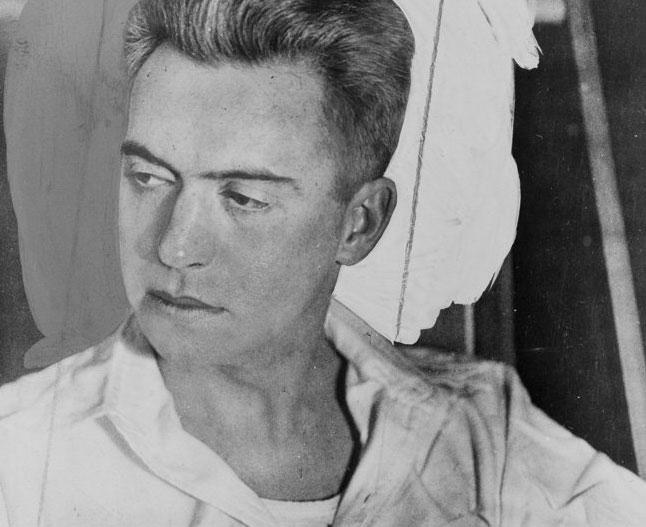
Le macchine, i macchinari, gli umani, il terrore dell’intercambiabilità tra umano e non umano, le immagini pastorali, l’apocalisse, lo spazio naturale, lo spazio costruito, la fiducia in se stessi, l’indifferente unione di oggetti e suggestioni, la trascendentale libertà americana che implica solitudine e tensione mistica.
Le metamorfosi incessanti, quante persone posso ascoltare parlare contemporaneamente?
da qualche parte sulla Quattordicesima PRENDI L’ESPRESSO
per cancellare nuovi presentimenti di dolore.
L’abbonamento integrato da appoggiare sulla macchinetta che apre le porte scorrevoli della metropolitana è il nostro obolo quotidiano da pagare a Caronte.
Un fiammifero bruciato che scivola in un orinale.
La metropolitana spalanca la promessa del ritorno a casa.
Il contrario di ponte è metropolitana.
*
The Tunnel | Hart Crane
Performances, assortments, résumés—
Up Times Square to Columbus Circle lights
Channel the congresses, nightly sessions,
Refractions of the thousand theatres, faces—
Mysterious kitchens. . . . You shall search them all.
Someday by heart you’ll learn each famous sight
And watch the curtain lift in hell’s despite;
You’ll find the garden in the third act dead,
Finger your knees—and wish yourself in bed
With tabloid crime-sheets perched in easy sight.
Then let you reach your hat
and go.
As usual, let you—also
walking down—exclaim
to twelve upward leaving
a subscription praise
for what time slays.
Or can’t you quite make up your mind to ride;
A walk is better underneath the L a brisk
Ten blocks or so before? But you find yourself
Preparing penguin flexions of the arms,—
As usual you will meet the scuttle yawn:
The subway yawns the quickest promise home.
Be minimum, then, to swim the hiving swarms
Out of the Square, the Circle burning bright—
Avoid the glass doors gyring at your right,
Where boxed alone a second, eyes take fright
—Quite unprepared rush naked back to light:
And down beside the turnstile press the coin
Into the slot. The gongs already rattle.
And so
of cities you bespeak
subways, rivered under streets
and rivers. . . . In the car
the overtone of motion
underground, the monotone
of motion is the sound
of other faces, also underground—
“Let’s have a pencil Jimmy—living now
at Floral Park
Flatbush—on the fourth of July—
like a pigeon’s muddy dream—potatoes
to dig in the field—travlin the town—too—
night after night—the Culver line—the
girls all shaping up—it used to be—”
Our tongues recant like beaten weather vanes.
This answer lives like verdigris, like hair
Beyond extinction, surcease of the bone;
And repetition freezes—“What
“what do you want? getting weak on the links?
fandaddle daddy don’t ask for change—IS THIS
FOURTEENTH it’s half past six she said—if
you don’t like my gate why did you
swing on it, why didja
swing on it
anyhow—”
And somehow anyhow swing—
The phonographs of hades in the brain
Are tunnels that re-wind themselves, and love
A burnt match skating in a urinal—
Somewhere above Fourteenth TAKE THE EXPRESS
To brush some new presentiment of pain—
“But I want service in this office SERVICE
I said—after
the show she cried a little afterwards but—”
Whose head is swinging from the swollen strap?
Whose body smokes along the bitten rails,
Bursts from a smoldering bundle far behind
In back forks of the chasms of the brain,—
Puffs from a riven stump far out behind
In interborough fissures of the mind . . . ?
And why do I often meet your visage here,
Your eyes like agate lanterns—on and on
Below the toothpaste and the dandruff ads?
—And did their riding eyes right through your side,
And did their eyes like unwashed platters ride?
And Death, aloft,—gigantically down
Probing through you—toward me, O evermore!
And when they dragged your retching flesh,
Your trembling hands that night through Baltimore—
That last night on the ballot rounds, did you,
Shaking, did you deny the ticket, Poe?
For Gravesend Manor change at Chambers Street.
The platform hurries along to a dead stop.
The intent escalator lifts a serenade
Stilly
Of shoes, umbrellas, each eye attending its shoe, then
Bolting outright somewhere above where streets
Burst suddenly in rain. . . . The gongs recur:
Elbows and levers, guard and hissing door.
Thunder is galvothermic here below. . . . The car
Wheels off. The train rounds, bending to a scream,
Taking the final level for the dive
Under the river—
And somewhat emptier than before,
Demented, for a hitching second, humps; then
Lets go. . . . Toward corners of the floor
Newspapers wing, revolve and wing.
Blank windows gargle signals through the roar.
And does the Daemon take you home, also,
Wop washerwoman, with the bandaged hair?
After the corridors are swept, the cuspidors—
The gaunt sky-barracks cleanly now, and bare,
O Genoese, do you bring mother eyes and hands
Back home to children and to golden hair?
Daemon, demurring and eventful yawn!
Whose hideous laughter is a bellows mirth
—Or the muffled slaughter of a day in birth—
O cruelly to inoculate the brinking dawn
With antennae toward worlds that glow and sink;—
To spoon us out more liquid than the dim
Locution of the eldest star, and pack
The conscience navelled in the plunging wind,
Umbilical to call—and straightway die!
O caught like pennies beneath soot and steam,
Kiss of our agony thou gatherest;
Condensed, thou takest all—shrill ganglia
Impassioned with some song we fail to keep.
And yet, like Lazarus, to feel the slope,
The sod and billow breaking,—lifting ground,
—A sound of waters bending astride the sky
Unceasing with some Word that will not die . . . !
. . . . .
A tugboat, wheezing wreaths of steam,
Lunged past, with one galvanic blare stove up the River.
I counted the echoes assembling, one after one,
Searching, thumbing the midnight on the piers.
Lights, coasting, left the oily tympanum of waters;
The blackness somewhere gouged glass on a sky.
And this thy harbor, O my City, I have driven under,
Tossed from the coil of ticking towers. . . . Tomorrow,
And to be. . . . Hereby the River that is East—
Here at the waters’ edge the hands drop memory;
Shadowless in that abyss they unaccounting lie.
How far away the star has pooled the sea—
Or shall the hands be drawn away, to die?
Kiss of our agony Thou gatherest,
O Hand of Fire
gatherest—




